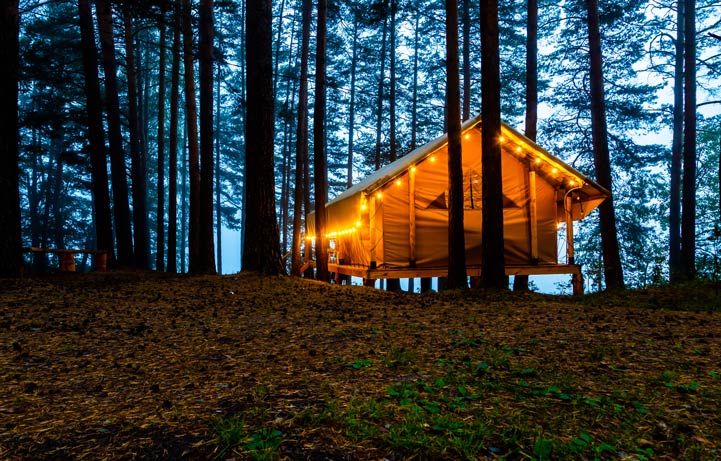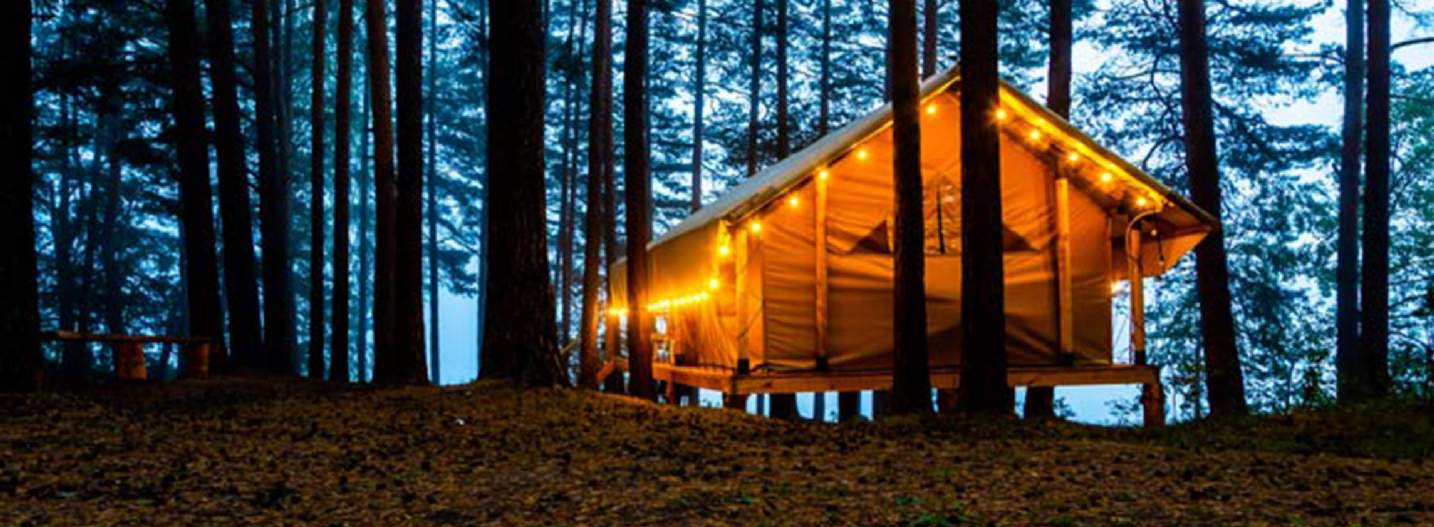How consumer behaviour is redefining market trends
This publication provides a snapshot into the performance and trends of four key sectors of the UK rural tourism, leisure and events market:
- Weddings
- Holiday accommodation
- Visitor attractions
- Festivals and events
Businesses that listen to consumer expectations, innovate and successfully satisfy these trends are more likely to stand out against the competition and provide the best possible customer experience for repeat business and financial success.
Despite leisure sector challenges, we see examples of businesses bucking trends and achieving good holiday accommodation occupancy rates and visitor numbers. These businesses are innovating and launching new products and services in response to emerging trends.
Simon Foster, Director, Tourism, Leisure and Events
Recovery from the pandemic in the tourism, leisure and events markets has been slower than expected, with overall demand now marginally below 2019 levels. According to Visit Britain, the most significant barriers to overnight UK trips are:
While little can be done about the weather, customers are already taking measures to cut costs: Visit Britain’s sentiment tracker suggests the interest in shorter trips between August 2024 – November 2024 is generally higher than 2023. Offering value for money in line with emerging trends will be one way businesses can outperform other operators.
Emerging industry trends
Weddings: record-breaking spend is still cost-conscious
We are seeing a reduced number of wedding enquiries, showrounds and bookings for 2024 and 2025. This is believed to be because fewer couples met during the lockdowns, which has resulted in fewer engagements. There is confidence the market will return to normal beyond 2025.
Adam Davies, Associate Director, Tourism, Leisure and Events
The average cost of a wedding is now £20,800 according to Bridebook, an 8% increase from the average spend of £19,200, 12 months ago. Couples seeking better value for money without compromising on quality are increasingly willing to get married on less popular days. Last year for the first time less than half of weddings (48%) were on a Saturday.
When choosing a venue, couples will read an average of 33 venue reviews before making contact. 51% of Gen Z couples will view a business’s Instagram before making first contact, emphasising the importance of social media and reviews as promotional tools. Demand for barn venues is rising and this style of venue is now the most popular. Whatever the venue, three-quarters (77%) of ceremonies took place at the wedding reception venue in 2023, a figure that has been continuously rising since 2018.
.jpg)
Holiday accommodation: travellers look for last-minute magic
Occupancy levels for traditional holiday accommodation are down compared to 2023. In this challenging environment, accommodation that provides unique and authentic experiences, strong green credentials, and wellness options is performing best. There is also a growing trend of last-minute bookings and shorter stays – seven in ten bookings are made within two months of travel.
David Collier, Associate Director, Tourism, Leisure and Events
The occupancy rate is an important key performance indicator for accommodation owners and managers to understand. When occupancy levels drop, promotional campaigns and special events can be used to secure additional income. Across the UK, annual peak occupancy has slowly declined from highs of 69% in August 2021, to 62% in August 2022, and 57% in August 2023 (Visit Britain).
The average occupancy rate in June 2024 was 47%, down from 51% in June 2023. Each of the first six months of 2024 has been down on the same month the previous year (Visit Britain).
In contrast to Visit Britain’s statistics, and based on Airbnb, Vrbo and HomeAway bookings, AirDNA reports that in 2023:
- Listings are up 15% on 2022 and 8% on 2019
- 17% more nights were booked compared to 2022
- 1.5% rise in occupancy rates compared to 2022
- 11% increase in total number of booked nights compared to 2019
Canopy & Stars estimates that unique, high-end glamping accommodation (treehouses and unique, design-led cabins) achieves occupancy rates above 70%, with specific examples achieving 90% or more.

Visitor attractions: hands-on experiences in demand
News from Scotland is positive, but the recovery in the visitor attraction market continues to slow across the rest of the UK. Innovation is key to ongoing success, and visitors want an experience and hands-on opportunities. With visitors concerned about personal finances, offering this alongside value for money is increasingly essential.
Adam Davies, Associate Director, Tourism, Leisure and Events
Recovery following the Covid-19 pandemic slowed in 2023 but continued (Visit Britain). Attractions in England reported an 11% increase in total visits from 2022 to 2023, but visits are still down 28% compared to 2019 (196 million visits compared to 274 million visits in 2019).
In Scotland, the Association of Scottish Visitor Attractions reported visitor numbers between January and July 2024 were up 5.6% compared with the same period during 2023. May was particularly popular, up 16.7% when compared to May 2023.
Festivals and events: large events continue to sell tickets
Larger events such as Glastonbury and Green Man festivals continue to sell out in record time. However, smaller niche music festivals increasingly struggle to survive in the face of rising production (especially artist) costs. There is a growing appetite for nature-based outdoor events with strong environmental credentials, particularly appealing to the growing Gen Z demographic.
David Collier, Associate Director, Tourism, Leisure and Events
The Association of Independent Festivals says that at least 42 festivals in the UK were either postponed, cancelled, or completely closed in 2024, mainly due to sharply rising production costs (73% since 2018) far outstripping ticket price increases (19% since 2018).
Attendance at events focused on nature and the outdoors bucked the trend and grew globally by 25% on Eventbrite between January and September 2023, compared to the same period in 2022. Eventbrite also reports that 75% of all event attendees (and 78% of 21–35-year-olds) say they would probably pay a higher ticket price for nature-connected events.
Industry news
- Martyn’s Law: The Terrorism (Protection of Premises) Bill was included in the King’s Speech on 17 July, so it forms part of the government’s legislative programme for this Parliamentary session. Venues with a maximum occupancy of 100 or more will need to have security plans in place.
- Scottish tourism tax: The Visitor Levy (Scotland) Bill will allow local authorities to raise funds for local facilities and services through a charge on overnight stays. It can be introduced from 2026.
- Furnished holiday lettings tax: From 6 April 2025, owners of furnished holiday lets will no longer benefit from specific capital gains tax, loan interest, capital allowance, and income tax advantages.
- Short-term lets: New controls on holiday lets in England are likely to introduce a registration scheme, and in some areas, planning permission could be required to allow properties to be used as short-term lets.
- Scotland’s new National Park: Galloway has been chosen as the preferred location for Scotland’s newest national park. A 12-month consultation period, led by NatureScot will start in November 2024.
Visit our Rural Knowledge portal for more information.
